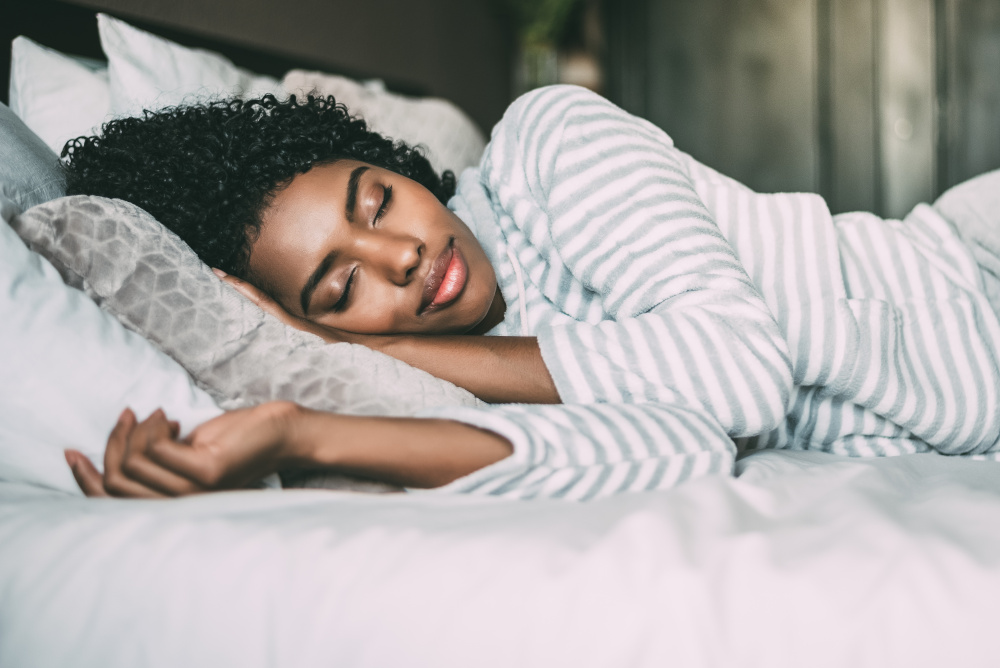Allergies and Sleep: How to Get Better Rest Despite Allergens\
By: Kaelyn Lacefield
Struggling to get a good night’s sleep due to allergies? You’re not alone. Allergies, immune responses to triggers like pollen, pet dander, or dust mites, can severely impact your sleep quality and overall well-being. This article will explore the connection between allergies and sleep, how allergens can disrupt your rest, and provide practical tips to help you sleep better despite allergy challenges.

Understanding How Allergies Affect Sleep
Allergies and sleep are closely linked. When you encounter allergens, your immune system releases histamines and other inflammatory substances. This can result in symptoms like nasal congestion, sneezing, and itchy eyes, making it difficult to relax and fall asleep.
These symptoms can cause you to toss and turn at bedtime, struggle to breathe through congested nasal passages, and wake up frequently. The resulting sleep disruption can create a cycle of poor rest and increased allergy symptoms, leading to daytime fatigue and a weakened immune system.
Common Sleep-Disrupting Allergens
Allergens can be present all year round, causing seasonal and perennial allergies. Here are some of the most common allergens that can disrupt your sleep:
- Pollen: Pollen from trees, grasses, and weeds can trigger seasonal allergies, particularly in spring and fall.
- Pet Dander: Proteins in pet saliva, skin flakes, and urine can cause allergic reactions, especially if pets share your sleeping space.
- Dust Mites: These microscopic creatures thrive in bedding and carpets, leading to allergic reactions that disturb sleep.
- Mold Spores: Mold, often found in damp or poorly ventilated areas, can be a hidden cause of allergic reactions and sleep disruptions.
How Allergens Disrupt Sleep
Allergy symptoms such as nasal congestion and sneezing can make falling and staying asleep hard. Blocked nasal passages can lead to fragmented sleep and exacerbate other sleep disorders like obstructive sleep apnea. Additionally, the discomfort from allergies can lead to a cycle of sleep disruption and daytime fatigue, further weakening your immune system and worsening your allergy symptoms.
Tips for Better Sleep Despite Allergies
Managing allergies doesn’t mean sacrificing a good night’s sleep. Here are some effective strategies to improve your sleep quality:
- Control Allergy Triggers:
- Clean Regularly: Dust and vacuum your bedroom often to reduce airborne allergens.
- Use an Air Purifier: Invest in a high-quality air purifier to remove allergens from the air.
- Create a Pet-Free Zone: Keep pets out of your bedroom if you’re sensitive to pet dander.
- Use Allergy Medications: Over-the-counter or prescription medications can temporarily relieve allergy symptoms, helping you sleep better.
- Consider Immunotherapy: For severe allergies, allergen immunotherapy (allergy shots) can reduce sensitivity to allergens over time, providing long-term relief.
- Monitor Pollen Levels: During high pollen seasons, check pollen counts and plan outdoor activities when levels are lower to minimize exposure.
- Practice Nasal Rinsing: Using saline to rinse your nasal passages can relieve congestion and promote better breathing during sleep.
- Establish a Bedtime Routine: A calming pre-sleep routine can help signal your body that it’s time to wind down and prepare for rest.
Creating an Allergy-Friendly Sleep Environment
Transforming your bedroom into an allergy-friendly space can significantly improve your sleep quality. Consider these tips:
- Use Allergen-Proof Bedding: Encase your mattress, pillows, and box springs with covers that prevent dust mites from settling in your bedding.
- Wash bedding Frequently: Regularly clean your sheets, pillowcases, and blankets in hot water to eliminate allergens.
- Control Humidity: Maintain bedroom humidity between 30% and 50% to prevent mold growth.
- Keep Windows Closed: During high pollen seasons, keep windows shut to prevent pollen from entering your bedroom.
- Choose Hard Flooring: Opt for hardwood, tile, or vinyl flooring instead of carpet, which can trap allergens.
- Groom Pets Regularly: Bathe and groom your pets often to reduce dander.
Allergy Treatments and Their Impact on Sleep
Effective allergy treatment can make a significant difference in sleep quality:
- Positive Airway Pressure Therapy: CPAP therapy can help maintain uninterrupted breathing during sleep for those with allergies and obstructive sleep apnea.
- Allergy Medications: Prescription medications can target specific symptoms for comprehensive relief.
- Immunotherapy: Allergy shots can gradually reduce sensitivity to allergens, leading to fewer symptoms and better sleep.
Conclusion
Allergies don’t have to ruin your sleep. By understanding the impact of allergens on rest and implementing practical strategies, you can improve your sleep quality and wake up feeling refreshed. Create an allergy-friendly sleep environment, consider effective treatments, and take steps to minimize allergen exposure for a restful and refreshing night’s sleep. For severe allergies and persistent sleep issues, consult a healthcare professional to explore treatment options and break the cycle of sleep disruption caused by allergens. With the right approach, you can reclaim your sleep and enhance your quality of life.